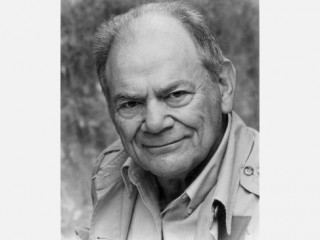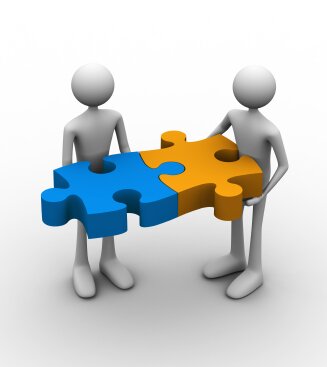8th May 2012
The third week saw yet more new faces in the classroom and more lively discussion than in previous weeks. I watched the changing group dynamics as some students happily entered into lively debate throughout the session. People are now relating to each other's background experiences and forcing discussions albeit in a friendly manner, often challenging group or individuals opinions. This, for me was a wonderful development that brought the subject alive.
We started by completing last week's exercise - working in groups and presenting factual information relating to our allocated newspaper articles, before arguing against the presented points of view. I took my turn to aid my fellow student, before we both argued our points with the rest of the class. I believe I played my part in the debate and welcomed constructive discussion, enjoying the moment. Full details of the article, along with the facts and points against are recorded in my Week 2 blog.
And so on to the third week's focus:
The Family - Sociological Ideas about 'Family'
The standard format PowerPoint presentation was accompanied by a printout of the slides allowing us to take notes whilst the lecturer talked around each point. The slides covered the following points:
Part-time degree, Level 1 – Discussions about the family and households. Relationship of the family to the social structure and social change, with particular reference to the economy and to state policies. Also, the changing patterns of marriage, cohabitation, separation, divorce, child-bearing and the life course, and the diversity of contemporary families and household structures.
Nature and extent of changes in the family regarding gender roles, domestic labour, power relationships, the nature of childhood and changes in the status of children in the family and society. Additionally, demographic UK trends since 1900 re changes in birth rates, death rates and family size.
How do you define your family group? - Several students provided their definitions based on their own family lives: (1) Mum, Dad, brother and sister, (2) Parents, brothers, sisters, extended family members and even friends - Jamil (African), (3) the Human Race, (4) the nuclear family, 2.4 children, and (5) Mother and sister, as father left many years ago.
Why the family is important in acquiring culture, how the family can be defined and, is the family universal?
After the session I looked up the definition of 'Universal' - The Free Dictionary (online): Universal - "Of, relating to, extending to, or affecting the entire World or all within the World; Worldwide."
Basic Ideas - Family is the primary socialisation agency of society, forming the central experiences of an individuals life - as a child and most adults through parenthood. The place where we are most likely to "be ourselves."
How do you define your family group? - Several students provided their definitions based on their own family lives: (1) Mum, Dad, brother and sister, (2) Parents, brothers, sisters, extended family members and even friends - Jamil (African), (3) the Human Race, (4) the nuclear family, 2.4 children, and (5) Mother and sister, as father left many years ago.
Part 1 -Definitions & Universality
Why the family is important in acquiring culture, how the family can be defined and, is the family universal?
After the session I looked up the definition of 'Universal' - The Free Dictionary (online): Universal - "Of, relating to, extending to, or affecting the entire World or all within the World; Worldwide."
Basic Ideas - Family is the primary socialisation agency of society, forming the central experiences of an individuals life - as a child and most adults through parenthood. The place where we are most likely to "be ourselves."
Our Task in studying the family - To recognise the positive and negative features. The ways in which the family is changing, to explore the meanings of family life to it's members. To understand the role of the family in acquiring culture and to ask is the family in decline and dying?
Anthony Giddens defines the family as
 |
| A. Giddens |
"A group of persons directly linked by kin connections, the adult members of which assume responsibility for caring for the children."
Kinship - relationships based on biological or marital ties.
Household - the place of domesticity.
What proportions of households contain families like this? - mixed couple with two children; the 'Nuclear family' with 2.4 children. Answer (2005): just 21% of UK households ...and Married couples with children form just 18% of UK households! Interesting statistics indeed...
Murdock and Goode on the Nuclear family - George Murdock (1949): basic family unit across the World is the nuclear, comprising mother, father and their offspring. This seems more than a little out-moded to me! William Goode (1963): worldwide trend is moving towards Western model of the nuclear family. Again, this now seems out-dated and old fashioned, in my opinion as I personally know very many people who come from family structures other than the nuclear model.
 |
| W. Goode |
 |
| G.Murdock |
Alternatives to the traditional family - Polygamy
British people mostly practise monogamy - marriage of only 2 people, of the opposite sex. Common practise today is serial monogamy - married to several people over a lifetime, but only 1 at a time).
Polygamy - marriage that involves at least 3 people.
Polygyny - where a man can have more than 1 wife.
Polyandry - where a woman can have more than 1 husband.
The Nayar tribe: a case study - Kathleen Gough (1972): women bore children for up to 12 husbands. Biological fathers took no responsibility for children's upbringing - the mother's brothers were economically responsible for her offspring. Reflections of this in contemporary family; single parents with family help.
The Oneida Community (Boston 1848) - founded by Christian preacher, John Humphrey Noyes: sexual activity between agreeable members, but only those considered suitable were allowed to reproduce. An ethos of group marriage where children were raised communally.
The Russian Experiment - Followed the Russian Revolution (1917): deliberate attempt to destroy the traditional family unit. Marriage and divorce both abolished, nurseries, laundrettes and canteens introduced to free women of domestic work. The idea had to be abandoned after children became psychologically disturbed by the instability as parents went through many partners.
Kibbutz System: Israel - Today approx. 5% of Israel's population live in Kibbutz and it's no longer considered a good alternative. Children raised in age groups, apart from their parents, only spending family time with their biological parents each evening and on weekends. Today, Kibbutz children eat and sleep with their parents.
Black matrifocal families - Matrifocal: where the mother is the head of the family.Absent fathers is common in Afro-Caribbean families; lone parent families, as in contemporary society.
Communes -Element of sharing but the family unit is usually embodied in the wider community. Communes vary in structure and liberality. Since the mid 1970's the number UK communes has been in decline, halving from around 100 to approx. 50.
Is the Nuclear Family universal? - Diana Gittins (1993) suggests it's only possible to talk of relationships as universal, not the family unit. Robert Chester argues that snapshots of households is misleading as most people live in families at one time during their life-cycle. Barrett & McIntosh (1991) stress that it is the 'idea of the nuclear family as universal' that is the significant fact.
Part 2 - The Functions of the Family
This section reviews the 'loss of family' thesis, considers the functions of the family unit, and that in late modernity/postmodern society (from the 1970's onwards) the family unit is taking on new functions. Growth in people seeking alternative styles of family life and alternatives to the family unit.
Ronald Fletcher (1966) talked of the 'multifunctional family' but was equally aware of the family being stripped of its secondary functions. He felt the modern nuclear family was being left with 'residual' functions. Residual - definition (thefreedisctionary.com): 'The quantity left over at the end of a process; a remainder.'
George Murdock's Universal Residual Functions - George Murdock survey (1949) of 250 societies: claimed there are 4 universal residual functions of the family, a Functionalist view:
sexual
economic
education - socialisation (the first institution)
reproductive
Talcott Parsons: Family Stripped of its Function - Talcott Parsons sees the modern family stripped to just 2 'basic and irriducable' functions, a functionalist view:
Socialisation of children.
Stabilisation of adult personalities.
 |
| T.Parsons |
Critique of the Functionalist view - Murdock and Parsons take a functionalist perspective on the family. This can be seen as over-romantic and idealised, often referred to the 'warm bath theory' of the family.
Family adaptation in Postmodern Society -In post 1970's the family is modifying itself to meet the changing circumstances of contemporary society. Less children, but more child-centred. Many couples choose to stay childless.
Source of emotional support - function to provide warmth and security, and emotional support. All members benefit from the loving relationships they share with one another.
Family as a Source of Identity - the family provides a sense of identity. Clearly important to family members e.g. recent interest by media and individuals in family histories/trees.
Family as Leisure - provide shared leisure, holidays and special occasions e.g. weddings, birthdays, outings, cultural and educational visits (cinema, theatre, museums etc.)
Alternatives to the Traditional family - increasing numbers are rejecting the traditional family: singlehood, gay families, childless couples.
Singlehood - Past 40 years has seen a dramatic increase in the proportion of 1 person households. 12% of people in UK now live alone. Many are elderly or widowed, but not all. This is much more popular in the white population than in ethnic minorities. Divorced people and single professional young men and women help make up 29% of UK households. Factors can include the growth of number of FITT women - financially independent business women, as they no longer need to be financially dependant on a man - creative singlehood reflects the growth of the affluent young. More fashionable 'singles' accommodation is now available. There have been increases in divorce rates and separations from cohabitation. Also, delay or rejection of marriage or cohabitation plans.
Childless Couples - now less pressure on people to have children with couples putting lifestyle choice above starting a family. Some are put off by the increasing estimated cost of bringing up a child; approx. £50,000 from birth to aged 18.
Gay and lesbian relationships - often childless, but in 2002 UK Govt announced plans to allow same-sex couples to adopt children. Medical technology - surrogacy - allows people to conceive children in non-traditional ways. The non-traditional family form is slowly becoming less of a rarity.
Conclusions - Part 1 - Definitions & Universality
The family is defined as people tied by relationships based on blood, marriage, cohabitation and adoption. George Murdock sees the Nuclear Family at the heart of all families. William Goode sees the worldwide trend moving towards the Western model of the nuclear family (written in the 1950's and 1960's).
But, there are many examples that challenge universality, including anthropological examples like the historical Nayar tribe. There have been deliberate attempts to produce collective-based families like the Oneida Community. The Russian 'experiment' was important as it shows how significant the family is to society. The Kibbutz system of Israel is not seen as a real alternative. Diana Gittins argues that due to such variability in societies it is difficult to define the family as universal, only relationships. Robert Chester argues that 'snapshots' of households conceal the importance of family of peoples' life-cycle.
Conclusions - Part 2 - Functions of the Family
There is general support for the 'loss of functions' thesis that argues that the family has been stripped of many of its functions i.e. the functionalist views: George Murdock sees the family performing just 4 universal residual functions - sexual, reproductive, socialisation (education) and economic - but Talcott Parsons (written 1950's) sees the family as performing just 2 'basic and irriducable' functions - socialisation of children and the stabilisation of adult personalities.
There has been growth in people rejecting traditional families. 12% of the UK population now lives alone, accounting for nearly one third of households. Couples account for almost a third of UK households, too. In this less homophobic society there has been an increase in gay and lesbian relationships.
To-Do List
Not so much this week :-)
Copy and file notes.
Review notes and handouts, and blog my thoughts.
Topics:
Sociology, Chapter 2, Asking and Answering Sociological Questions,
Anthony Giddens.
Basic concepts.
The family in historical context.
The development of family life.
The way we never were? Myths of the traditional family.
Lawrence Stone - classic study: The Family in Europe.
Families in global context.
Families and intimate relationships.
Development and diversity in family patterns.
South Asian families.
Black families.
Inequality within the family.
Balancing work and care.
Case study: British families with dependant children:by ethnic group, 2001.
Housework.
Intimate violence.
Domestic violence.
Social class.
Divorce and separation.
The rise of divorce.
Lone-parent households.
Diane Vaughan case study: Uncoupling - the experience of breaking up.
Fathering and the absent father.
Changing attitudes to family life.
Carol Smart, Bren Neale case study: Family Fragments?
New partnerships, step families and kin relationships.
Bean-pole families.
Alternatives to traditional marriage and family life.
Cohabitation.
Gay and lesbian partnerships.
Theoretical perspectives on families and relationships.
Functionalism.
Feminist approaches.
Case study: Talcott Parsons - The functions of family.
Theorising the transformation of love and intimacy.
The transformation of intimacy.
The 'normal chaos' of love.
Liquid love?
Conclusion: the debate about family values.
The development of family life.
The way we never were? Myths of the traditional family.
Lawrence Stone - classic study: The Family in Europe.
Families in global context.
Families and intimate relationships.
Development and diversity in family patterns.
South Asian families.
Black families.
Inequality within the family.
Balancing work and care.
Case study: British families with dependant children:by ethnic group, 2001.
Housework.
Intimate violence.
Domestic violence.
Social class.
Divorce and separation.
The rise of divorce.
Lone-parent households.
Diane Vaughan case study: Uncoupling - the experience of breaking up.
Fathering and the absent father.
Changing attitudes to family life.
Carol Smart, Bren Neale case study: Family Fragments?
New partnerships, step families and kin relationships.
Bean-pole families.
Alternatives to traditional marriage and family life.
Cohabitation.
Gay and lesbian partnerships.
Theoretical perspectives on families and relationships.
Functionalism.
Feminist approaches.
Case study: Talcott Parsons - The functions of family.
Theorising the transformation of love and intimacy.
The transformation of intimacy.
The 'normal chaos' of love.
Liquid love?
Conclusion: the debate about family values.
Summary - Final Thoughts
A very enjoyable session of student debate and lively group discussion that proved rewarding, thought provoking and very good fun. The family is a massively complex subject area, diverse in states and cultures and showing ever changing trends. It's opened my eyes to looking at the world in a much more contemplative and considerate way. We all face challenges and everyones family circumstances are unique due to the relationships we build with those related to us. It's a huge subject area that we all have strong views on. The sociological study is extremely informative.
I'm not really looking forward to the background reading as work as been real hectic this past week, but I'm still keenly awaiting my next class. Who'd have thought..?
I'm not really looking forward to the background reading as work as been real hectic this past week, but I'm still keenly awaiting my next class. Who'd have thought..?




















No comments:
Post a Comment